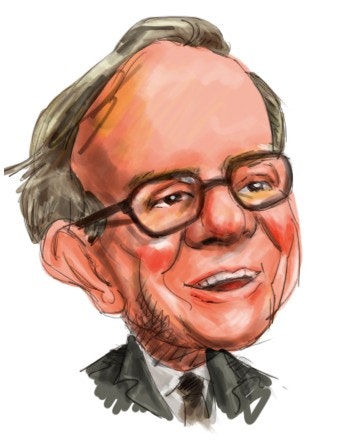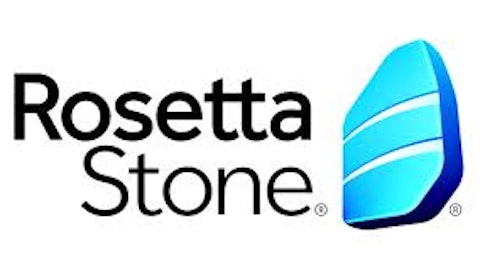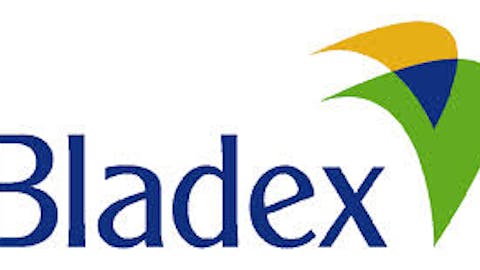A friend of mine was recently telling me about his investment in The Coca-Cola Company (NYSE:KO). Then, he went on to say that he knows investors who match nearly every one of Warren Buffett’s investment decisions; after all, my friend said, Buffett is a legend. Our conversation prompted a question: why does Buffett chose some firms over seemingly worthy competitors? After some analysis, I now know some of the reasons why The Coca-Cola Company (NYSE:KO) is a Buffett classic.
The types of companies Buffett likes
Through his holding company Berkshire Hathaway Inc. (NYSE:BRK.A) -A)-B), Buffett champions companies with sustainable competitive advantages that provide long-term value to investors and consumers. As the world’s largest beverage company and leading manufacturer and distributor of non-alcoholic beverages, The Coca-Cola Company (NYSE:KO) fits the bill. In fact, it comprises about 18.5% of Berkshire Hathaway Inc. (NYSE:BRK.A)’s $88 billion enterprise.

A sustainable enterprise
According to its 2012 annual report, The Coca-Cola Company (NYSE:KO) boasts the largest global distribution system of any company in the world. Of the estimated 57 billion beverage servings consumed daily across the globe, 1.8 billion servings bear trademarks owned by or licensed to The Coca-Cola Company (NYSE:KO). The Coca-Cola Company (NYSE:KO)’s reach covers over 3% of all liquids consumed, including water, soda, energy beverages, alcohol, and other Dr Pepper Snapple Group Inc. (NYSE:DPS) inks. It is everywhere.
Interestingly, as described in its annual report, some beverage companies depend on Coke and rival PepsiCo, Inc. (NYSE:PEP) to distribute their products. For example, in 2010 Coke paid Dr Pepper Snapple Group Inc. (NYSE:DPS) $715 million to obtain the distribution rights (in this case, the ability to sell the products) of its Dr Pepper Snapple Group Inc. (NYSE:DPS) and Canada Dry brands throughout the U.S. and Canada. The contract lasts for 20 years and includes renewal options for Coke. Overall, Dr Pepper Snapple Group Inc. (NYSE:DPS) relies on Coke and PepsiCo, Inc. (NYSE:PEP) to distribute more than 50% of its product volume annually. This is significant because Dr. Pepper Snapple Group’s success depends, in part, on Coke and PepsiCo, Inc. (NYSE:PEP).
Coke is also efficient. For example, it used to follow an outsourcing model where it sold its syrups to independent bottling companies that would produce, bottle, and distribute the end products. However, after seeing PepsiCo purchase bottling companies in 2009, Coke followed suit. By fully integrating their business processes, both firms streamlined their manufacturing, distribution, and marketing systems, which resulted in greater economies of scale and cost reductions.
Now, Coke owns and operates over 90% of its North American business enterprise and can respond to consumer demand more rapidly.
Cash and dividends, another Buffett staple
With a beta of only 0.34, Coke’s risk is comparable to its rivals. The firms are not incredibly risky during market fluctuations. With operating cash flow of $10.63 billion as of April 30, Coke further distinguishes itself because it has the ability to adjust to unforeseen market conditions. The soft drink giant also offers a dividend similar to Pepsi and Dr. Pepper Snapple Group.

Surging forward, a Buffett favorite
Perhaps Coke’s most impressive characteristic, though, is the established company’s ability to grow.
Coke has not missed an earnings forecast for more than two years, and it exceeded analyst forecasts for the first quarter. While US sales are stagnant due to flat growth, Coke is seeing rising sales in emerging markets and volume growth in growing regions like India, Russia, and Brazil. Chairman and CEO Muhtar Kent is, “pleased with our first quarter performance results, having once again delivered solid growth against the backdrop of a still uncertain global economy.” Coke shows no signs of slowing down, even in a volatile market.
Dr. Pepper Snapple Group, however, only operates in the Americas. And as of the first quarter, only 3.6% of its operating profits came outside of Canada and the U.S. If the North American market stagnates or sinks, its investors will not be pleased with the results.
Even though Pepsi is investing in growth and emerging markets, Pepsi cannot compete on the same level as Coke because its product offering is two-tiered. Snacks comprise about 51% of Pepsi’s revenues, while beverages comprise about 49% of revenues. In addition to Coke’s superior economies of scale and distribution system, Pepsi’s snack division is a major reason why Coke’s margins are exceedingly higher. The sight surely pleases Buffett.

Buffett’s recommendation
Above are only a few reasons why Coke is a Buffett favorite. It is an efficiently managed, mature firm that continues to generate investor value through dividend payments and market growth. Additionally, Coke’s margins are untouchable by its competitors, and it is an entrenched giant in a global industry. With large stake in Coke, Berkshire Hathaway Inc. (NYSE:BRK.A) and Buffett will continue to reap benefits. In my opinion, Coke is in business for the long haul.
Brendan Marasco has no position in any stocks mentioned. The Motley Fool recommends Coca-Cola and PepsiCo. The Motley Fool owns shares of PepsiCo. Brendan is a member of The Motley Fool Blog Network — entries represent the personal opinion of the blogger and are not formally edited.
The article Why Buffett Likes Coke … and Not Just the Drink originally appeared on Fool.com is written by Brendan Marasco.
Copyright © 1995 – 2013 The Motley Fool, LLC. All rights reserved. The Motley Fool has a disclosure policy.






